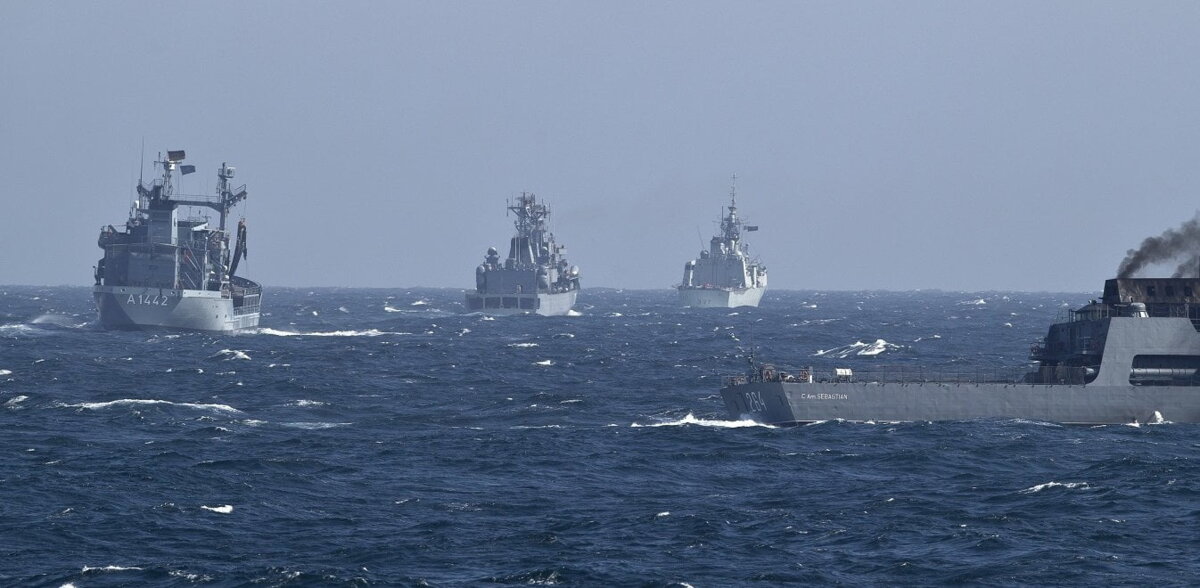As Donald Trump prepares his team for a take over from the Biden Administration, one of the crucial unknowns — amongs other major ones - is to what extent efforts will be made in order to diffuse the tensions between Turkey and Greece. As keenly observed, the relationship between Ankara and Athens has resembled a yo-yo game, a rhetoric decorated with —mainly Greece’s— wishes for a positive agenda, contrasting with the — mainly Turkish — positions that remain unchanged.
At first glance, past 12 months or so suggest a new phase of rapprochement: Turkish President Erdoğan ceased with his huffiness with Greek PM Kyriakos Mitsotakis (he was furious with the latter’s speech at the U.S. Congress) and a dialogue was initiated between Hakan Fidan, Turkish Foreign Minister and his Greek counterpart Giorgos Gerapetridis, who met 14 times in the past 17 months; mostly with no advisers present. The Greece-Turkey High-Level Cooperation Council (HLCC), which was established in 2010 as a bilateral institutional framework aimed at fostering cooperation in various sectors such as trade, energy, and education, while addressing longstanding disputes through dialogue, was recently revived, after a period of dormancy.
Despite all such efforts, observers are wary, seeing trampings on the same ground. As noted by Kathimerini daily quoting Fidan, “While Greece insists the agenda should only include the maritime zones and the continental shelf, Turkey insists on a “a totality of issues: maritime zones, airspace, the continental shelf, the minority issues in Thrace region of Greece, both countries’ positions on Cyprus, Mediterranean- [and] Aegean-related issues.”
“Turkey has also suggested that should negotiations falter, the disputes should be referred to international adjudication, provided Greece removes its legal objections to the jurisdiction of the International Court. In short, Turkey seeks to leverage international law to force a broad-based, permanent resolution on a range of contentious issues – some of which extend far beyond the confines of Aegean maritime boundaries, raising the stakes for future negotiations.”
Raising the stakes, or the perceptions of it, was noted also when Yaşar Güler, Turkish Minister of Defence, mentioned the northeastern city of Alexandroupoli, which the U.S.A. has added to the map as a strategic port hosting US forces (along with Souda Bay port in Crete), as a “security threat”.
His ministry lashed out at Cyprus, too, after its president, Nikos Christodoulides, launched a new initiative to join NATO.
“Nicosia has no grounds for applying for membership in NATO,” said the ministry, “but even its attempts are an unacceptable development for Turkey.” There is little doubt that Ankara will use its veto, if the process ever reaches the final phase of voting within NATO. Güler keeps also mentioning the “Blue Homeland” doctrine —developed by a group of hawkish admirals in Turkey as a map encompassing large swaths of Eastern Mediterranean— repeating commitments for Turkey’s security interests.

Agrandissement : Illustration 1

It may look bizarre in the context of a NATO member, Turkey, accusing its two NATO allies, Greece and the U.S.A. as “posing threat”, underlining “autonomy beyond alliances”, but it should not; we live in an increasingly bizarre global circumstances, and once more we are reminded of the fact that Turkey’s disgruntlement with Greece is actually a reflection of its derailed relations with Washington DC.
Turkey is, at the moment, one of the two NATO allies adrift, along with Hungary.
So, what is really going on?
Well, all eyes are on across the Atlantic now. Both sides across the Aegean Sea, seem hopeful that the new American administration will favour their side: Turkish side is rather certain on Erdoğan’s relations on personal level with Trump, as the Greek side — at least what is seen by the commentary on the press — put the emphasis on those Trump has nominated as Secretary of State - Marco Rubio - and National Security Advisor, Mike Waltz -- plus the Congress, angry with Erdoğan.
Thus, what we see is rather wild speculations and most of them might be missing certain points.
While it is clear that Greece has advanced considerably in terms of reinforcements about its national security in East Med context during Biden administration, Trump’s policies toward Athens’s volatile bilateral relationship with Ankara would likely reflect the former priorities of its presidency: “give and take diplomacy”, a focus on economic and defense ties, and an aversion to deep involvement in complex regional disputes.
Here, the first point will define the other two. We know that both Erdoğan and his old/new counterpart are transactionalists for whom the traditional state institutions matter no more than tools for their supreme personal dynamics. Erdoğan may be a well-known pragmatist in foreign policy, but Trump is, well, opaque in action.
“A characteristic of Trump is that he is unpredictable,” wrote Selim Kuneralp, a retired Turkish top diplomat. “One day he says one thing, the next day he does the opposite.” But as much as Trump is unpredictable, so may Erdoğan be flexible, as far as his power stand and political future is concerned.
Nevertheless, Trump would likely pursue a flexible approach, focusing on balancing the U.S. interests in both countries. It might even prioritize maintaining ties with Turkey, despite its contentious policies. More importantly, its emphasis would be on energy diplomacy in the Eastern Mediterranean. Encouraging joint energy projects could act as a pressure valve for Turkish-Greek tensions, although it would require significant concessions from both sides. Long-term solutions will depend on broader multilateral efforts, which the U.S. under Trump might deprioritize, leaving the future of Turkish-Greek relations uncertain.
Erdoğan knows that the fantasy-filled “Blue Homeland” doctrine has no future in the current East Med context. Following Israel’s tight grip on the developments much is a moving target, and far less is in Turkey’s favour. Any move in the region will have to be seen primarily through the prism of Greece-Israel-Egypt and Cyprus. Ankara’s visibility range has narrowed down considerably.
So, what we see in the choreography across the Aegean are maneauvres to strengthen positions for the “Trump rule”: both Greece and Turkey are in the waiting room, with eyes fixed on one another.
Therefore, Turkish rhetoric is likely to be perceived as raising the stakes, and Greece is not expected to come with another move before January 20, 2025.
The next meeting of the Greece-Turkey Supreme Cooperation Council (HLCC) is scheduled earliest for the end of January. Then, both sides will have known much of the personalities, modalities and what is really at stake, in the context of the East Med, Middle East and Ukraine.

Agrandissement : Illustration 2




